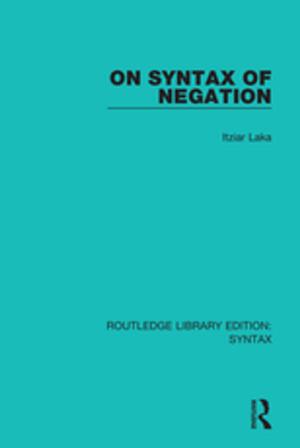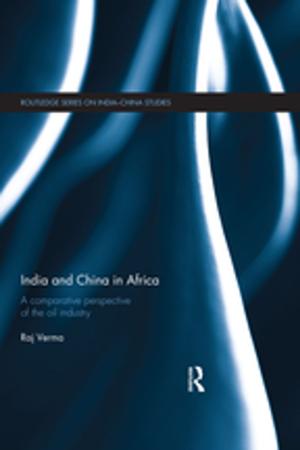Road to Pakistan
The Life and Times of Mohammad Ali Jinnah
Nonfiction, Social & Cultural Studies, Social Science| Author: | B. R. Nanda | ISBN: | 9781136704765 |
| Publisher: | Taylor and Francis | Publication: | July 3, 2013 |
| Imprint: | Routledge India | Language: | English |
| Author: | B. R. Nanda |
| ISBN: | 9781136704765 |
| Publisher: | Taylor and Francis |
| Publication: | July 3, 2013 |
| Imprint: | Routledge India |
| Language: | English |
This is a biography of Mohammad Ali Jinnah and the story of the creation of Pakistan. At a time of much interest and concern about Pakistan in the international community, this volume provides a historical context which helps in an understanding of the present. It traces the development of the Muslim identity on the Indian subcontinent and follows Jinnah as he rode the wave of Muslim communalism to ultimate success in the demand for the partition of India and the creation of Pakistan at independence from British rule.
Jinnah’s successful espousal of the demand for Pakistan was a remarkable feat. In achieving this success, Jinnah traversed a long distance from the beliefs with which he entered public life. He started out a nationalist, as a protégé of senior Congress leaders like Dadabhai Naoroji. However, the introduction of separate electorates for Muslims after the Minto–Morley reforms in 1909 led him to change his position in order to appeal to his changed constituency. Even so, it was not until 1937 that he unabashedly played the religious card. He now began to see the Congress and the Hindus as his adversaries rather than the British. Through these twists and turns of posture, the one constant factor was his underlying ambition to remain in a position of leadership and eminence.
This volume traces the zigzag course of Jinnah’s political life and the establishment of Pakistan within the broader framework of the Indian freedom struggle. Indeed the main players in this struggle with three protagonists were the Indian National Congress and the British rulers. This work demonstrates how this bigger struggle opened the door for Muslim separatism led by Jinnah. It was through this opening, aided by British moves to use the Muslim League as a foil to the Congress, that Jinnah very astutely led his party to success in its demand for the creation of Pakistan.
This is a biography of Mohammad Ali Jinnah and the story of the creation of Pakistan. At a time of much interest and concern about Pakistan in the international community, this volume provides a historical context which helps in an understanding of the present. It traces the development of the Muslim identity on the Indian subcontinent and follows Jinnah as he rode the wave of Muslim communalism to ultimate success in the demand for the partition of India and the creation of Pakistan at independence from British rule.
Jinnah’s successful espousal of the demand for Pakistan was a remarkable feat. In achieving this success, Jinnah traversed a long distance from the beliefs with which he entered public life. He started out a nationalist, as a protégé of senior Congress leaders like Dadabhai Naoroji. However, the introduction of separate electorates for Muslims after the Minto–Morley reforms in 1909 led him to change his position in order to appeal to his changed constituency. Even so, it was not until 1937 that he unabashedly played the religious card. He now began to see the Congress and the Hindus as his adversaries rather than the British. Through these twists and turns of posture, the one constant factor was his underlying ambition to remain in a position of leadership and eminence.
This volume traces the zigzag course of Jinnah’s political life and the establishment of Pakistan within the broader framework of the Indian freedom struggle. Indeed the main players in this struggle with three protagonists were the Indian National Congress and the British rulers. This work demonstrates how this bigger struggle opened the door for Muslim separatism led by Jinnah. It was through this opening, aided by British moves to use the Muslim League as a foil to the Congress, that Jinnah very astutely led his party to success in its demand for the creation of Pakistan.















